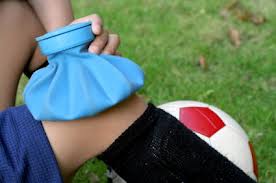
Nobody plays sports expecting to get injured, but unfortunately, injuries are part of sports.
Rest is integral to physical healing. However, for some athletes, being injured and getting taken out of their sport can trigger significant mental health issues – anxiety, depression, eating disorders and the list goes on.
Any injury and the healing process involve both the body and the mind. Certain psychological responses can complicate the healing process, particularly when an injury is extensive or requires surgery. Yet other psychological reactions can actually boost recovery and help an athlete return to sports healthy and strong.
Why is an athlete’s mental health so important to sports injury recovery?
Often when a patient is told they cannot play sports, even for a limited time, they will have been devastated.
For an athlete to perform at their optimal level, they have to be sound both physically and emotionally. This has come to light recently with high profile athletes during the Tokyo Olympic games.
That’s why it’s important to look out for an injured athlete’s mental health as well as their physical health. An injury that takes an athlete out of play for a long period can be traumatizing for someone who has structured their life around sports. If their medical ‘team’ understands this, they can watch for maladaptive responses and be ready to help patients who are struggling.
Depression, a common experience for injured athletes, has been associated with worse patient-reported outcomes, higher levels of pain, and increased rates of post-surgical complications.
On the flip side, some psychological factors have been associated with improved outcomes. Having a high athletic identity can motivate an athlete to commit fully to their rehabilitation and getting back to sports as soon as they are able.
Is there anything else providers can do to help athletes work through the emotional side of their recovery?
The goal of medicine is taking care of the whole person — not just their condition or injury. Simply asking a patient how they’re coping from an emotional standpoint can be extremely valuable to their recovery.
It’s also helpful to normalize the situation for patients and families. Most athletes are not accustomed to showing weakness. If they are sad or upset, many try to fight through their feelings or push them aside. Providers can help change this culture by letting patients know it’s OK if they are struggling emotionally and that there are ways to get help.
It’s not fun, but difficult emotions are a normal part of getting injured. Athletes don’t have to go through them alone.
#stepandstridepodiatry #respod
0800 473 776
(09) 212 9612
